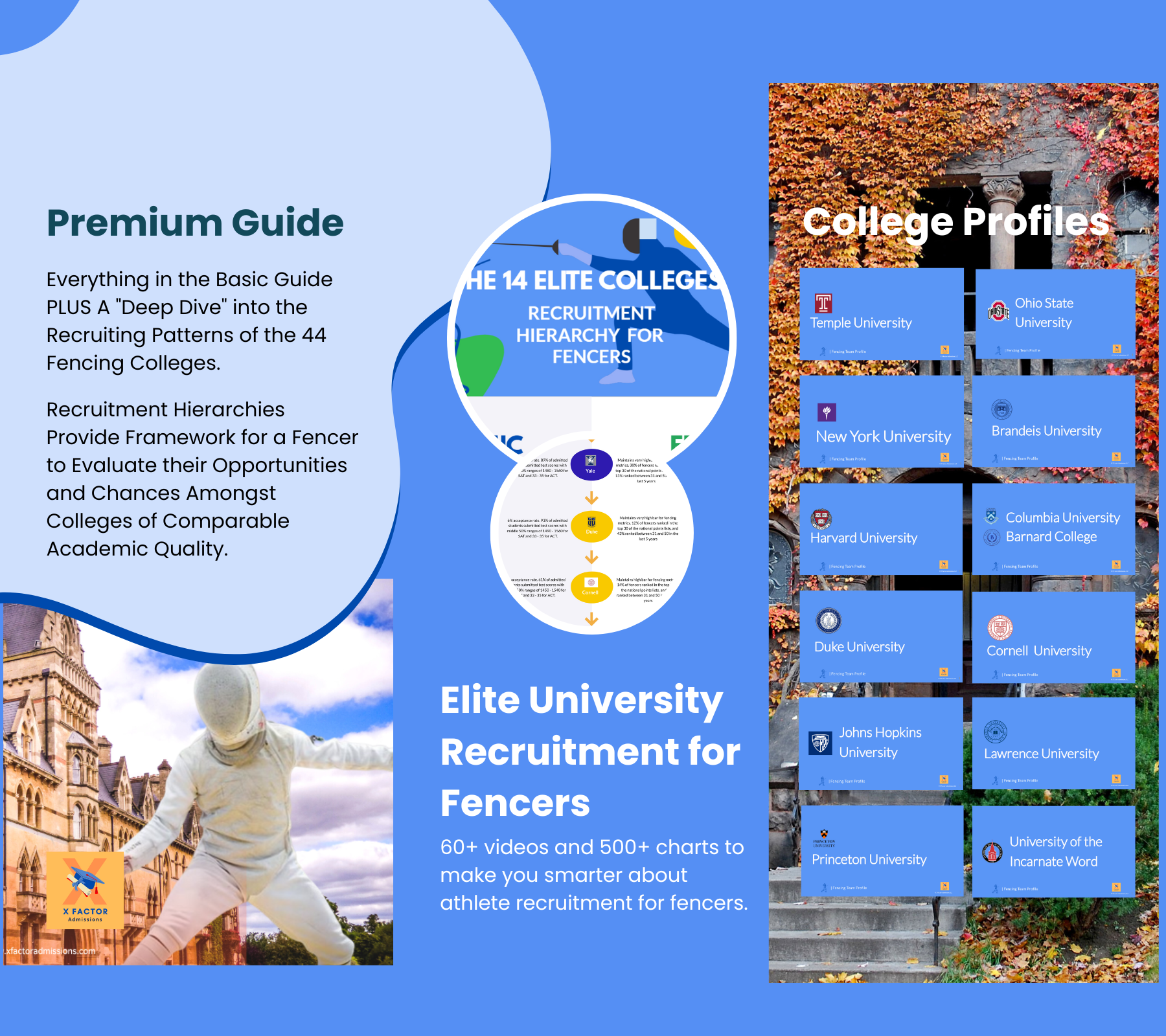List of Feeder Clubs for Fencing Athlete Recruits to Highly Selective Colleges
Just as elite high schools have played a major role in sending their students to the elite universities, fencing clubs have also played a major role in training high school fencers who consistently perform well at national tournaments to earn national points and reach the upper ranks of US Fencing’s Junior National Points List, opening the pathway for athlete recruitment to the elite universities.
25% or more of admitted students to Yale, Princeton and Dartmouth attended one of the top tier private schools in this country, commonly known as feeder schools. We decided to identify the feeder fencing clubs with consistent track records of sending fencers to the elite universities as athlete recruits.
Currently 16 of the 44 colleges with NCAA fencing teams are highly selective in their admissions. By highly selective, we mean colleges with acceptance rates of 16% or less. All 16 of these colleges rank within the top 30 of the US News College Rankings, meaning that admission to these colleges is both highly coveted and extremely hard to achieve.
These elite colleges not only demand outstanding academic performance, they also expect students to demonstrate excellence at one thing outside of academics.
Being a successful fencer ranked in the top 50 or so of National Points List for Juniors during junior year of high school is one way to demonstrate this excellence. A position within the top 50 opens the way for a fencer to be recruited to a Division 1 NCAA fencing team at one of the 12 elite colleges in Division 1.
While recruitment to one of the Division 3 colleges does not require a position on the National Points List, the recruiting coach will take into consideration the caliber of the club where the fencer trained, the fencer’s rating classification and the overall quality of the fencer’s tournament experience when deciding whether to support the fencer’s application for admission leading to an automatic spot on the fencing team.
Whether it is a Division 1 or Division 3 team, a successful fencer has a big edge over a regular applicant for admission to a highly selective college.
Our data shows that over the period we analyzed, 163 clubs sent at least one fencer to an elite university as an athlete recruit, but only a small group of clubs stand out as feeder clubs. Here’s a quick summary of the statistics on feeder clubs to Division 1 fencing teams at the elite colleges:
Epee -12 clubs out of 57 accounted for 64% of epee recruits over an 8-year period, and these same 12 clubs accounted for 53% of epee recruits for the 2022/2023 fencing year.
Foil - 14 clubs out of 58 accounted for 60% of foil recruits over an 8-year period, and these same 14 clubs accounted for 39% of foil recruits for the 2022/2023 fencing year. In the 2022/2023, the foil clubs sending recruits to the elite colleges were more diffused compared to prior years.
Saber - 14 clubs accounted for 68% of saber recruits over an 8-year period, and these same 14 clubs accounted for 70% of saber recruits for the 2022/2023 fencing year
parents’ guide to elite university recruitment for fencers
Everything you need to know about fencer recruitment in one place
Foundational knowledge about athlete recruitment for fencers
In-depth college profiles (incorporating Fencer Vital Statistics at Colleges with NCAA Fencing Teams) and 5 year recruitment patterns.
Recruitment Hierarchies ranking colleges of comparable academic quality according to level of difficulty of recruitment.
Please share this article with anyone who may find the content helpful!


